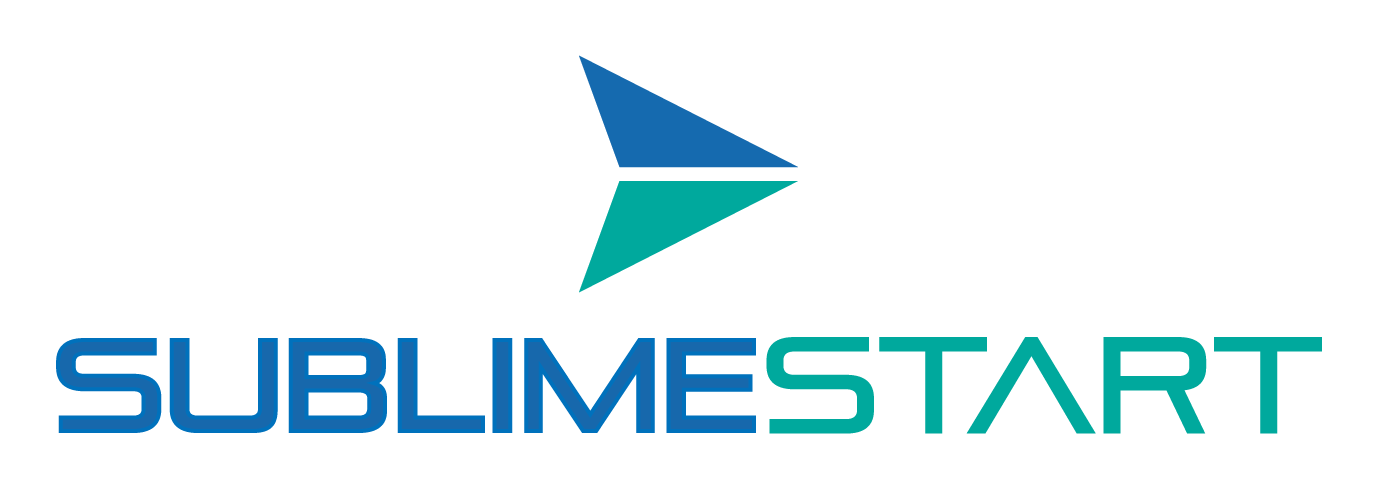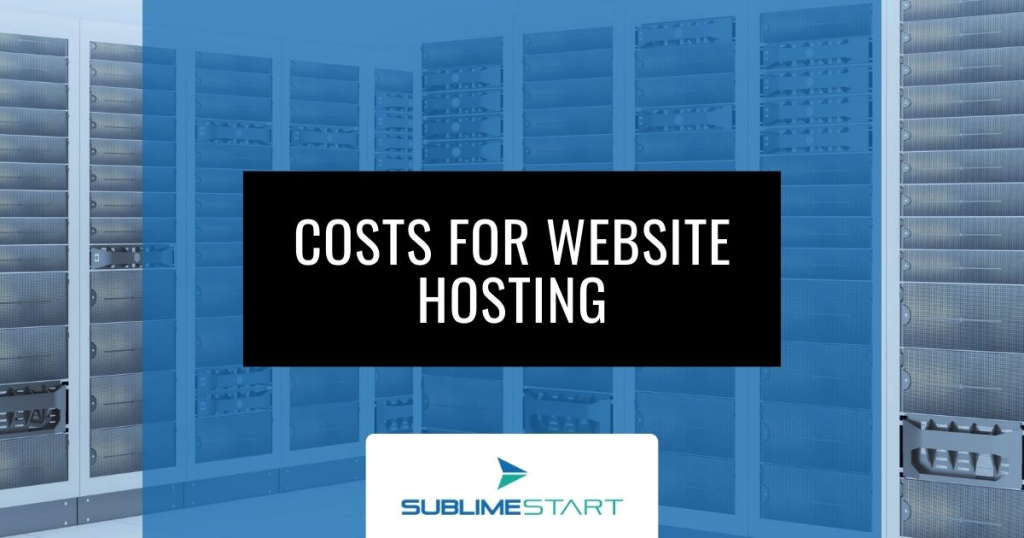Website Hosting Cost: A Quick Guide
The cost of website hosting can vary depending on the type of hosting you choose, the amount of storage space and bandwidth you need, and the features you require. However, you can generally expect to pay in money anywhere from € 2 to € 500 per month, a very broad range.
What hosting does your website requires?
Before choosing a hosting plan, defining your website’s goals is crucial. Different goals necessitate distinct hosting requirements. Here’s a breakdown of common website goals and their corresponding hosting needs:
- Basic website hosting (0 – 100 users or less per day): A basic hosting plan will suffice if your website aims to share your thoughts and photos with a small audience. These plans are affordable and can handle moderate traffic levels.
- Medium Level Website Hosting (300 – 700 users per day): To showcase your business or services to a wider audience, a hosting plan capable of handling increased traffic and e-commerce features is essential. These plans offer enhanced performance and scalability to cater to growing demands.
- Premium Hosting (700+ users or advanced security): Dedicated hosting and VPS hosting is the preferred option for websites generating substantial traffic. These plans provide the utmost performance and reliability, ensuring your website remains responsive and accessible to a large user base.
1. Basic Website Hosting
Personal Website Hosting is the most affordable option, but it also comes with the fewest features. Personal website hosting is done on a shared hosting. With shared hosting, your website shares resources with others on the same server. This means that your website may be slower than a website with its dedicated server. Shared hosting is a good option for websites with low traffic.
With shared hosting, you share a physical server with other websites, like renting a room. This makes it the most affordable option, perfect for showcasing your portfolio, blog, or online resume. Popular providers like Godaddy, Shopify, Bluehost, and Hostinger offer shared plans starting at just a few euro’s per month.
Besides being cheap there are many issues with shared hosting such as
- Slower loading times, especially during peak traffic periods
- Less to no control
- Bad to no support
- Costly to scale up or out of the server
Just like living with a roommate, sometimes servers can become a mess or very crowded. Therefore, shared hosting is typically used when trying out new projects.
2. Medium Level Website Hosting
While shared hosting can be cost attractive for businesses, its limitations become apparent as your website grows. However, instead of using an expensive VPS or dedicated hosting, small businesss can also use a hybrid hosting solution. Here the hosting will still reside on a shared server, but with dedicated resources (like RAM and CPU) allocated specifically to your site.
This way you secure faster loading times and improved uptime upfront. It can be seen as having a couple rooms for yourself inside an apartment, enough room for your traffic to flow through. This type of hosting will not be the cheapest type of hosting, but you can handle more traffic and have faster loading times. For a premium you can also have more control and support for this type of hosting.
3. Premium Website Hosting
If your website generates a lot of traffic, is custom build and needs high levels of security, you will need the high traffic website hosting. Typically high traffic website hosting is done on ether a VPS hosting or Dedicated hosting
- VPS hosting: A VPS hosting is like having your own apartment in a big building. You share the building with others, but you have your own dedicated space (RAM, CPU) and can decorate (install software) how you like. It’s great for growing websites and businesses needing more control than basic shared hosting.
- Dedicated hosting: meanwhile Dedicated hosting is more like a owning the building. You get your own dedicated space, with upgraded features (enhanced security, performance) and a concierge (managed service) to handle maintenance and emergencies. It’s perfect for mission-critical websites or businesses needing top-notch care. Be prepared to pay a premium for these perks.
Typically, a VPS hosting is good enough for high traffic websites.
Choosing between doing it yourself or outsourcing
When it comes to website hosting, the key question is: do-it-yourself or outsource to an agency? Both have there benefits and disadvantages. A key to consider is how much time and resources do you want to spend on hosting your own website compared to the amount of money.
DIY Hosting
Whether you have someone that can manage your hosting for you are have the technical expertise yourself. With DIY hosting you will be in charge of your website hosting.
- Control: You’re in the driver’s seat, managing everything from server setup to maintenance.
- Cost-effective: Suitable for budget-conscious users, especially for smaller websites.
- Technical expertise needed: Requires understanding of server administration and troubleshooting.
Agency Hosting
An agency or hosting provider can manage your website’s infrastructure and maintenance if you prefer outsourcing hosting tasks. This approach saves time and effort but comes at a higher cost.
- Hands-off approach: An agency or provider handles the technical aspects, freeing your time and energy.
- Expert support: Benefit from their experience and knowledge, ensuring smooth operation and security.
- Higher cost: Comes with a premium due to the managed service and expertise.
The four main hosting requirements to consider
To understand which type of hosting your website will need. Consider the type, reliability, features, and support you will need.
1. Hosting type
- Shared hosting: Shared hosting is the most basic and affordable type of hosting. In shared hosting, your website is hosted on a server with multiple other websites. This is the most suitable for small websites with low traffic. Prices typically range from € 10 – € 20 per month. Some even cheaper
- Virtual private server (VPS) hosting: VPS hosting provides a more isolated environment for your website, giving you more control over resources and performance. This is ideal for medium-sized websites with moderate traffic. Prices typically range from € 10 – € 100 per month.
- Dedicated hosting: Dedicated hosting gives you complete control over a physical server, ensuring maximum performance and resource allocation. This is suitable for large websites with high traffic or demanding applications. Prices typically range from € 100 – € 500 per month.
2. Hosting reliability
- Uptime: Uptime refers to the percentage of time your website is available to visitors. Reliable hosting providers typically offer uptime guarantees of 99.9% or higher. This means your website should be available more than 99.9% of the time. Uptime is normally out of your control, for example there could be technical issues.
- Data protection: Reliable hosting providers take data security seriously. They use robust security measures to protect your website from cyberattacks and data breaches.
- Performance: Reliable hosting providers ensure your website loads quickly and efficiently for visitors. They use high-quality hardware, optimize servers, and implement caching techniques to enhance performance.
3. Hosting features
- Storage space: Storage space refers to the amount of data your website can store. This includes website files, images, and content. For small websites, 50GB or 100GB of storage is usually sufficient. For larger websites, 1TB or more may be needed.
- Bandwidth: Bandwidth refers to the amount of data your website can transfer to visitors each month. This is especially important for websites with high-traffic or multimedia content. E
- Email accounts: Email hosting is often included in website hosting plans. This allows you to create and manage email addresses for your website.
4. Hosting support
- Responsiveness: Reliable hosting providers offer prompt and helpful support to their customers. They typically have multiple support channels, such as live chat, email, and phone support.
- Expertise: Support representatives should be knowledgeable and able to troubleshoot various technical issues. They should be able to provide clear instructions and guidance to help you resolve your problems.
- Availability: Support channels should be available around the clock, seven days a week, to accommodate customers in different time zones.
Recurring costs to own a website
Next to hosting your website, you will also have other costs. These costs can be included or excluded within your hosting costs. The six main extra website costs are costs for domain name, SSL Certificate, Extensions, Themes, Marketing Tools and Email Hosting.
1. Domain name
A domain name is your website’s address on the internet. It’s typically purchased annually from a domain registrar, and prices vary depending on the domain extension (.com, .net, .org, etc.). For example, a .com or .nl domain typically costs around € 10 – € 20 per year, while more specialized extensions like .io or .blog may cost more.
2. SSL Certificate
An SSL certificate encrypts the data exchanged between your website and visitors, protecting sensitive information like credit card details. It’s essential for e-commerce websites and should be obtained from a certificate authority (CA). Prices for SSL certificates range from € 0 – € 250 per year, depending on the level of security and features offered.
3. Extensions/Plugins
Extensions or plugins are add-ons that enhance the functionality of your website. They can add features like contact forms, e-commerce capabilities, or social media integration. Prices for extensions vary depending on the type of plugin and its features, but they typically cost between € 5 – € 150 per year.
4. Themes
Prices for themes range from € 0 – € 150 per year, depending on the complexity and features offered. Themes change the appearance and design of your website. They can be purchased from theme marketplaces or developed / customised by webdesigners.
5. Marketing Tools
Marketing tools help you promote your website and attract visitors. They can include social media management tools, email marketing platforms, and search engine optimization (SEO) software. Prices for marketing tools vary depending on the features and usage, but they can range from € 10 – € 1000 per year.
6. Email hosting
Email hosting allows you to create and manage email addresses associated with your website domain. It’s often included in web hosting plans, but you may need to purchase separate email hosting if you need more storage or advanced features. Prices for email hosting range from € 10 – € 1000 per month (and even more), depending on the storage space, mailboxes, and features offered. Gmail and Outlook are options to host your own emails.
What does SublimeStart offer?
Need technical support for your hosting? Depending if your organisation is a fit with us. We charge € 150 – € 250 per month for you depending on the workload to keep your website online. With us you keep your own login and payment to a hosting party, we manage the hosting environment for you, and we can add marketing and advertising services in the same contract.






